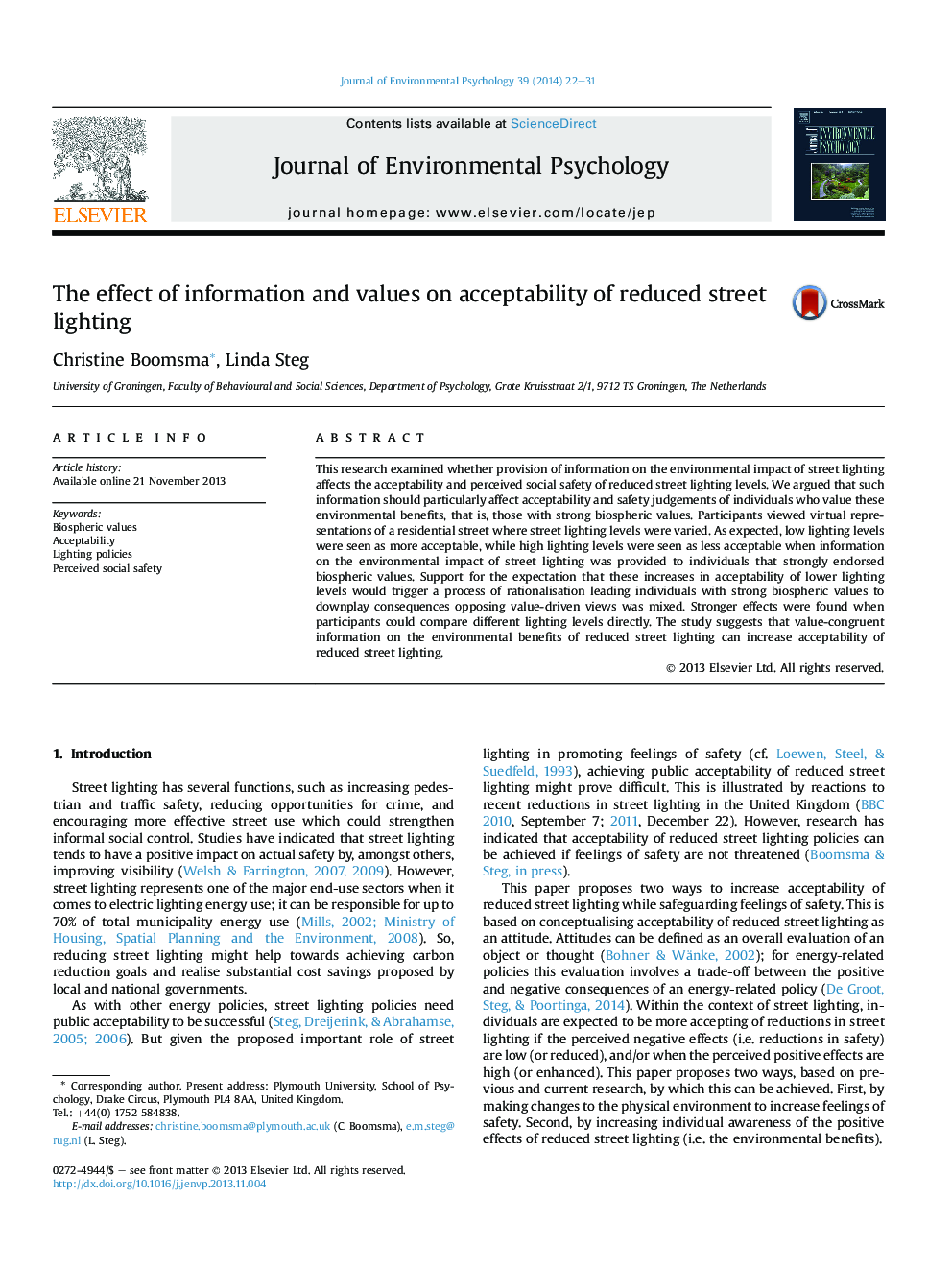| Article ID | Journal | Published Year | Pages | File Type |
|---|---|---|---|---|
| 885589 | Journal of Environmental Psychology | 2014 | 10 Pages |
•Environmental information is more effective when one has strong biospheric values.•Stressing value-congruent benefits of low street lighting increases acceptability.•People tend to downplay consequences that threaten their value-driven views.•Mixed results regarding downplaying of the negative effects of low street lighting.
This research examined whether provision of information on the environmental impact of street lighting affects the acceptability and perceived social safety of reduced street lighting levels. We argued that such information should particularly affect acceptability and safety judgements of individuals who value these environmental benefits, that is, those with strong biospheric values. Participants viewed virtual representations of a residential street where street lighting levels were varied. As expected, low lighting levels were seen as more acceptable, while high lighting levels were seen as less acceptable when information on the environmental impact of street lighting was provided to individuals that strongly endorsed biospheric values. Support for the expectation that these increases in acceptability of lower lighting levels would trigger a process of rationalisation leading individuals with strong biospheric values to downplay consequences opposing value-driven views was mixed. Stronger effects were found when participants could compare different lighting levels directly. The study suggests that value-congruent information on the environmental benefits of reduced street lighting can increase acceptability of reduced street lighting.
